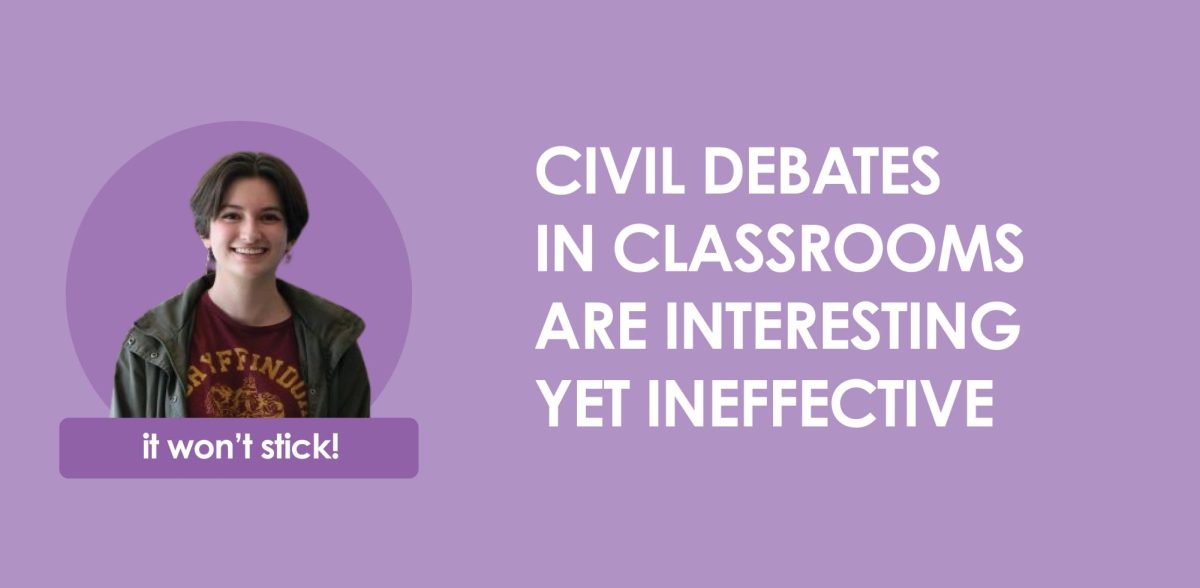I’ve been in love with public speaking since middle school, but it also makes me so nervous that I want to vomit every time I think about it. Due to both of these factors, when my eighth-grade Honors English teacher announced that we would be doing a Lincoln-Douglas (LD) debate over topics of our choosing, I was both thrilled and nauseated. I worked harder on that assignment than anything else all year, and by the time the actual debate rolled around, I knew all of the content inside and out. But looking back on that debate now, I can only recall how an LD debate works and how I felt while I was in the midst of delivering my contentions. I don’t remember a single thing about the topic I researched. For that reason, civil debates in classrooms geared towards helping students learn content are wholeheartedly futile and ineffectual because the experience overshadows the material.
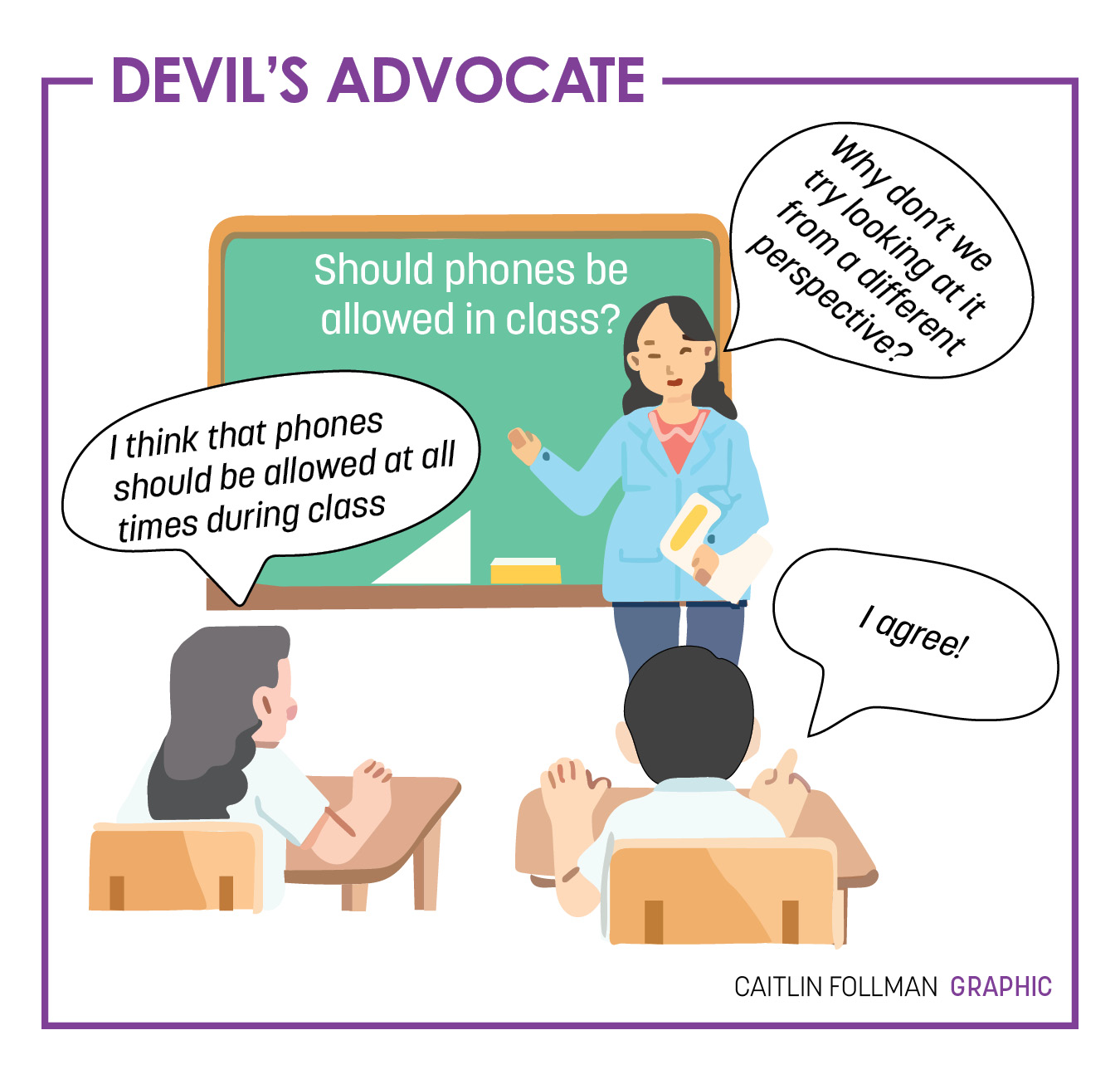
Don’t get me wrong, I think having debates in a classroom setting is an excellent way to teach students…about how to debate. There’s a debate class at this school—one I’m definitely looking forward to taking—and participating in debates in that class is probably the most effective way of learning how to improve public speaking skills, but there’s so much that goes into learning how to debate. For example, when I participated in the LD debate in middle school, so much of our class time was spent learning about debate vocabulary, how to use it, how to format our written contentions and how to actually execute them. It was a lot, and because of this, I didn’t put in a lot of time researching my topic—I just wanted to make sure I knew how a debate worked before I went up and did it for the class. The little research I did left my brain as soon as I was finished with the assignment because that material wasn’t emphasized; the debate was emphasized instead.
My other point is that public speaking is objectively scary. So much so that, according to the Washington Post, it’s the number one most common fear among Americans. If you take a bunch of high schoolers and tell them they’re going to learn the information they need to learn via a civil debate, then chances are that the vast majority would be terrified and subsequently wouldn’t retain the material. In some cases, fear can be an excellent motivator but it can also be overpowering and overwhelming. Because of this, students are often more focused on their anxiety about messing up in front of an audience than they are about making sure they have a good understanding of the topic they researched.
Debates can be a lot of fun. They’re unique and they’re memorable, but they can also be nerve wracking and time consuming. Most importantly, though, they’re wholly ineffective if you want to teach students something that’ll actually stick.
The views in this column do not necessarily reflect the views of the HiLite staff. Reach Evelyn Foster at [email protected].










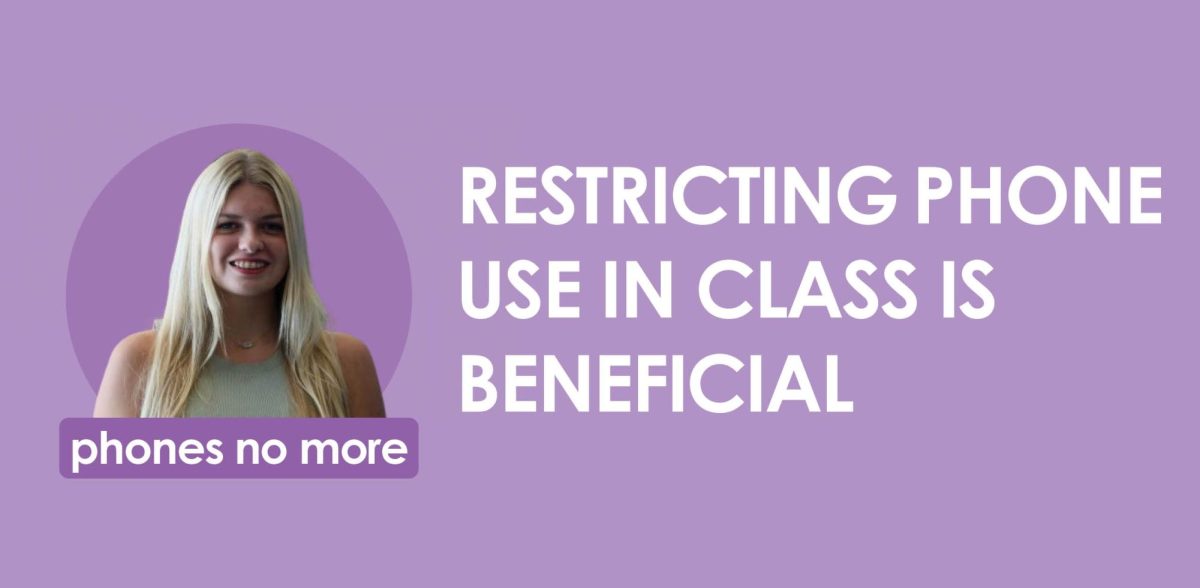
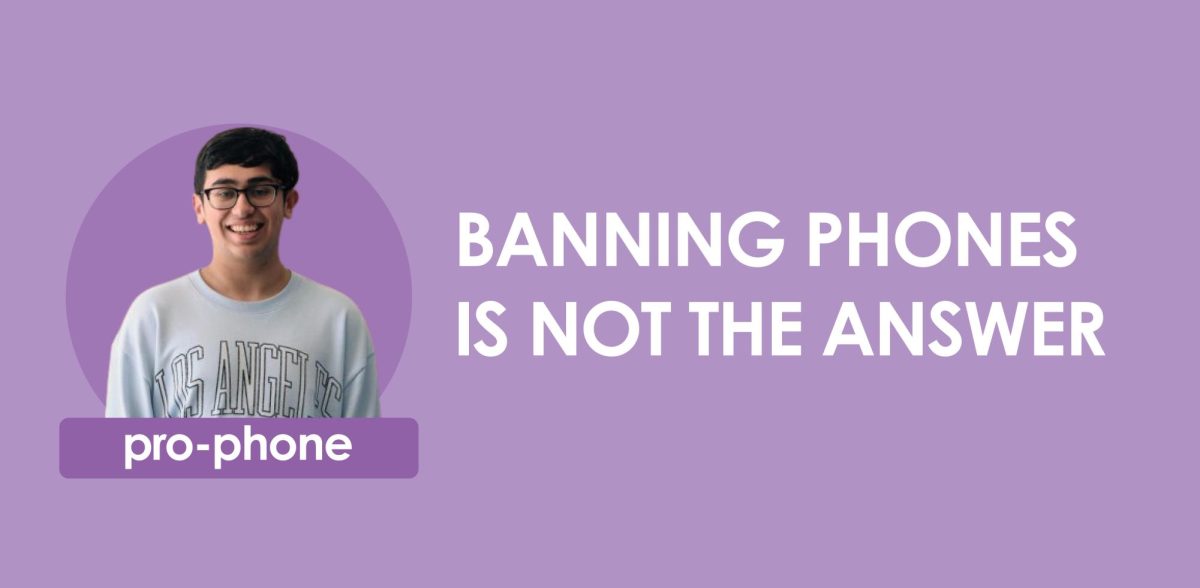
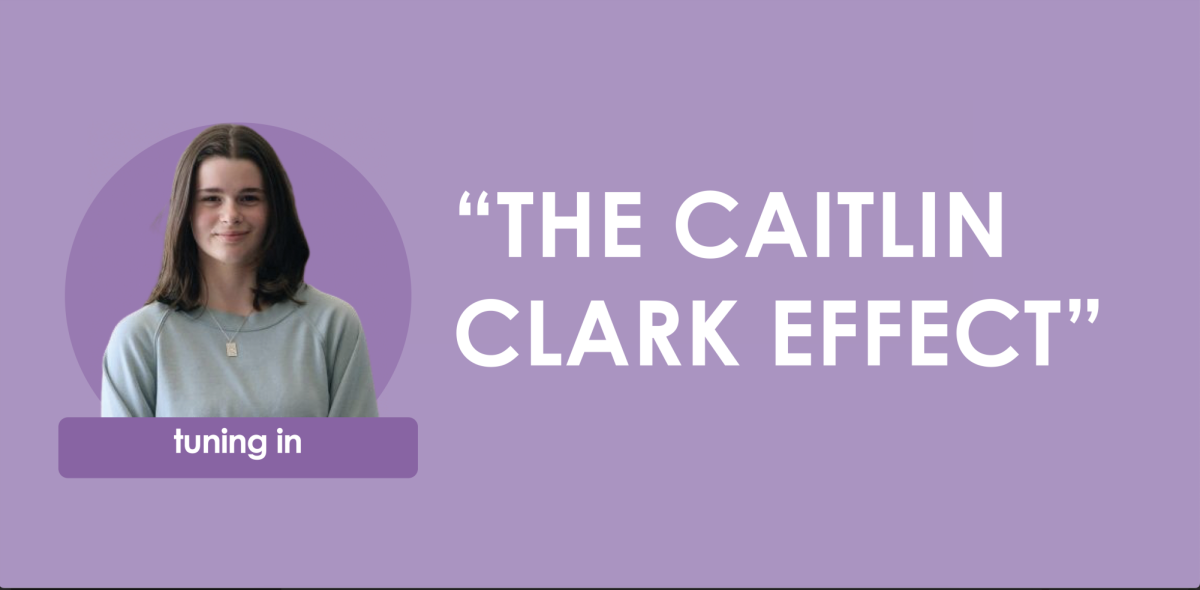

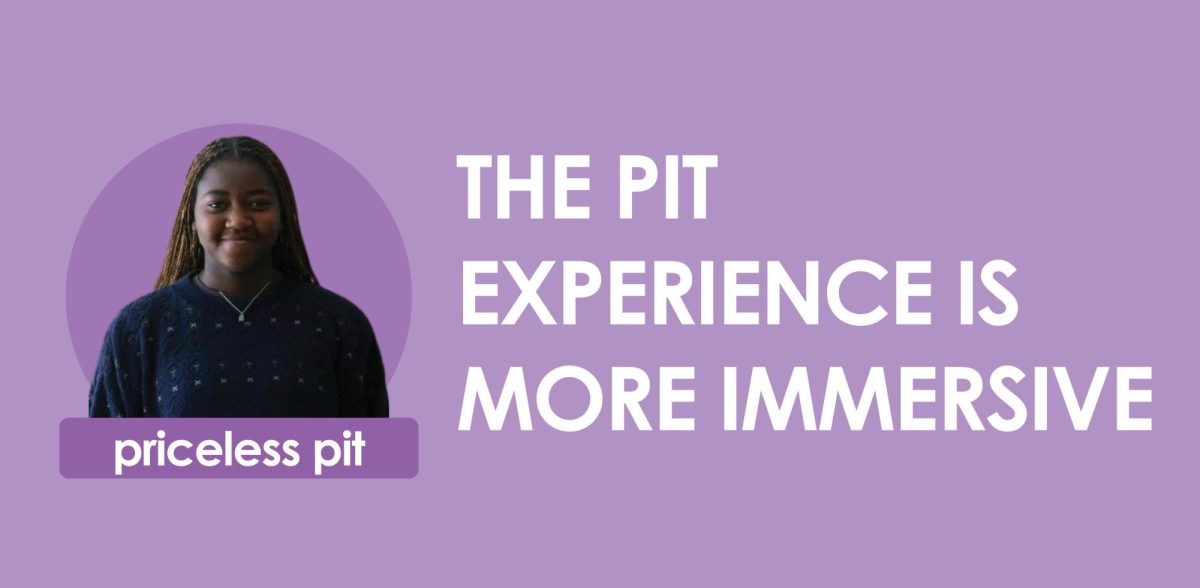





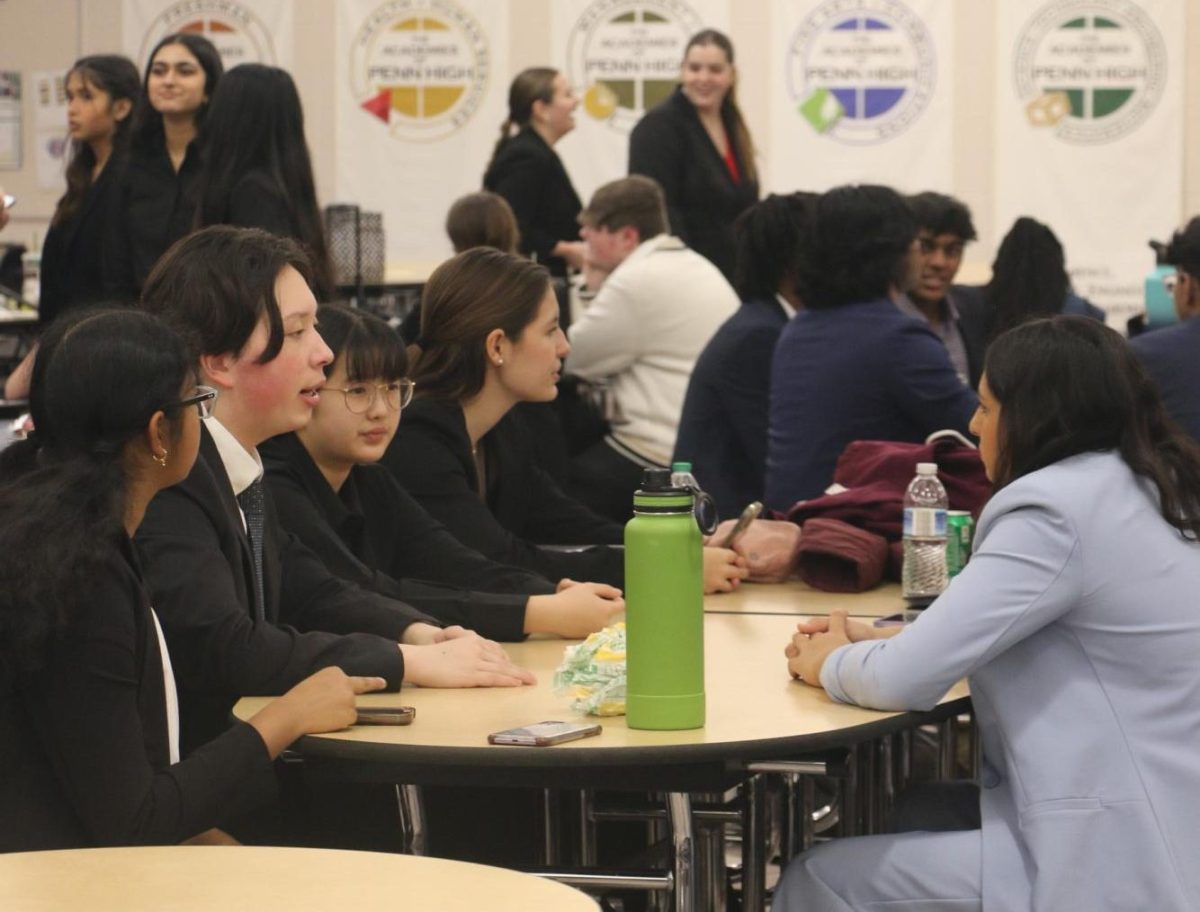
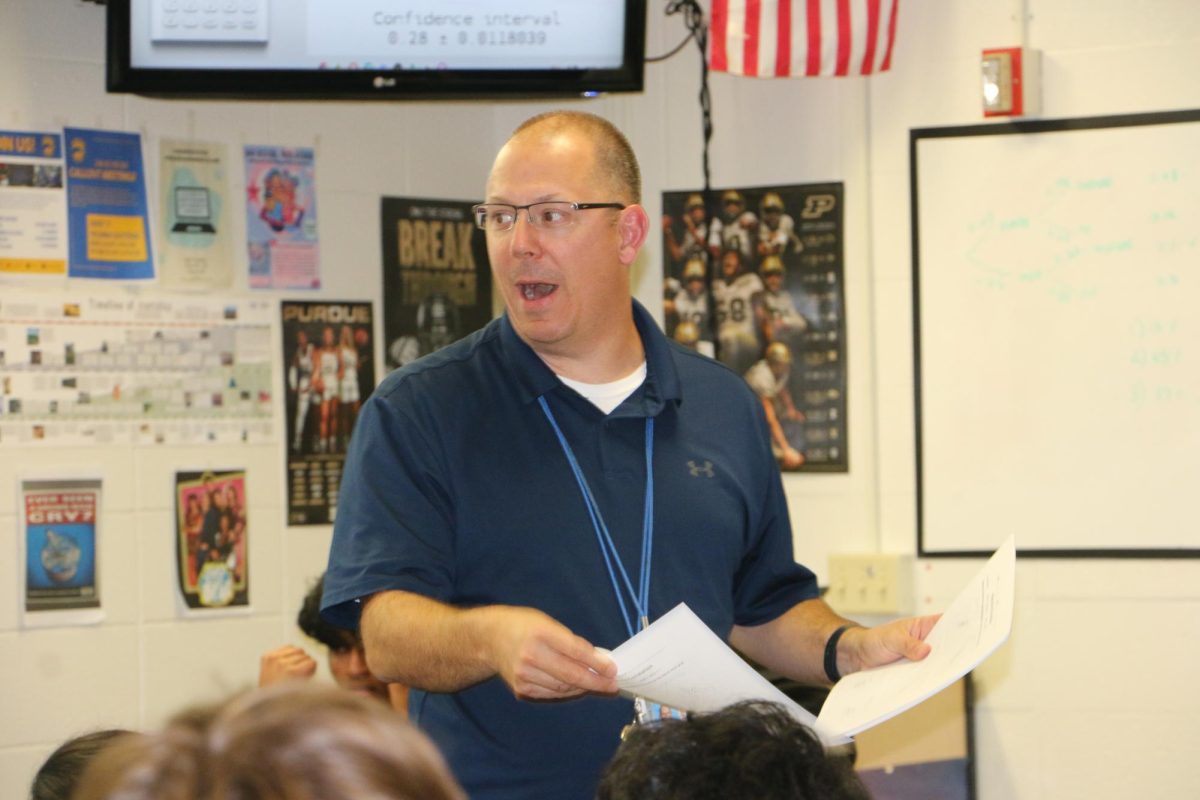








![Family vlogger controversy, need for content reform [opinion]](https://hilite.org/wp-content/uploads/2024/05/Screenshot-2024-05-14-11.33.37-AM-1200x465.png)





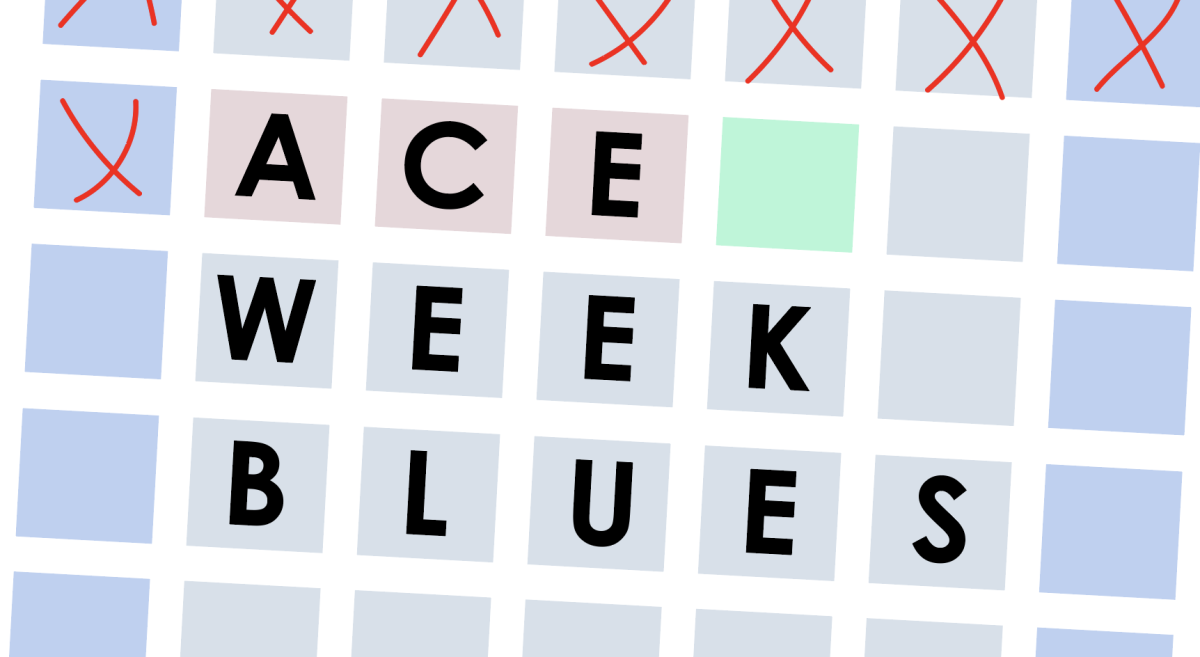
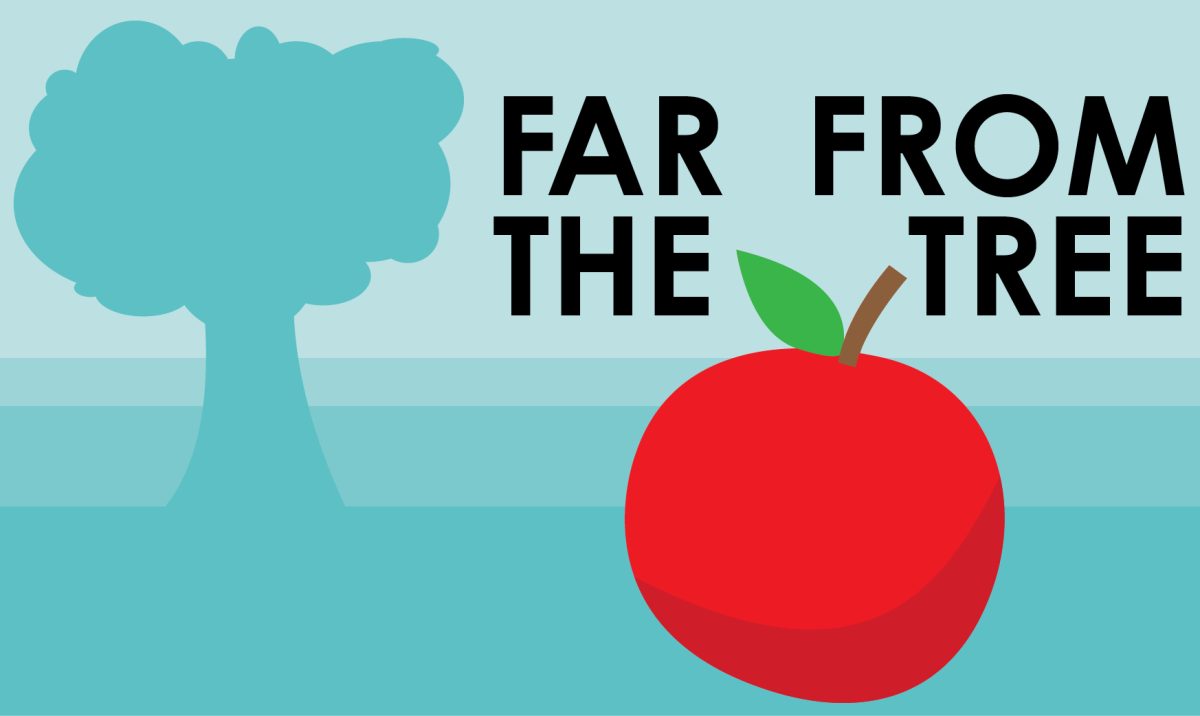







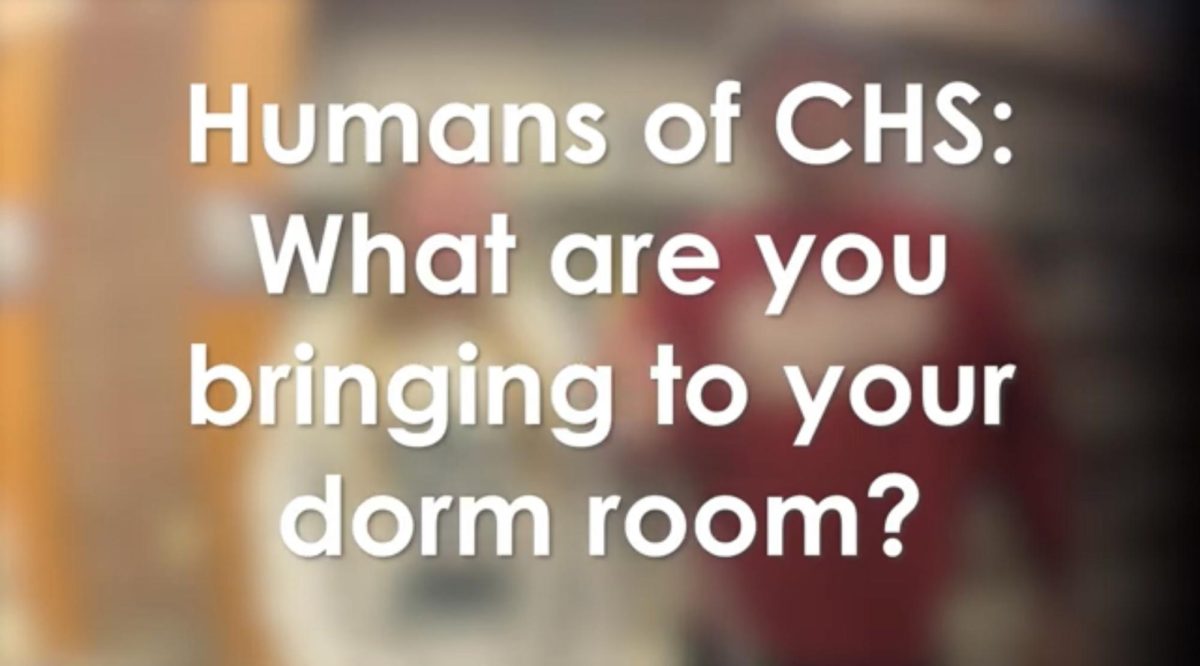









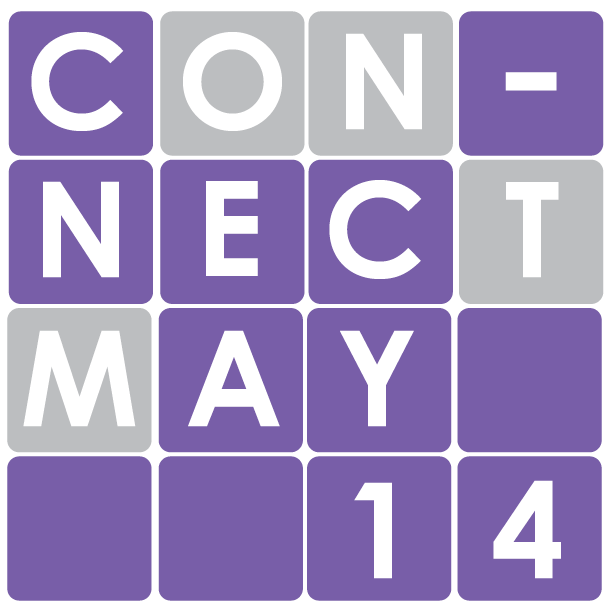
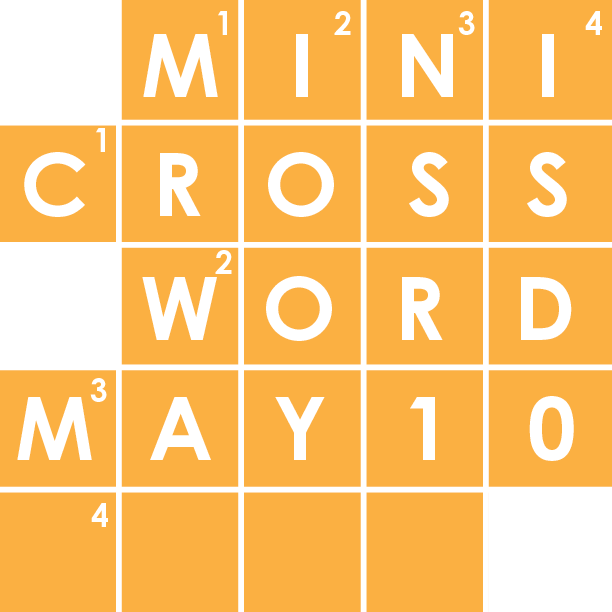
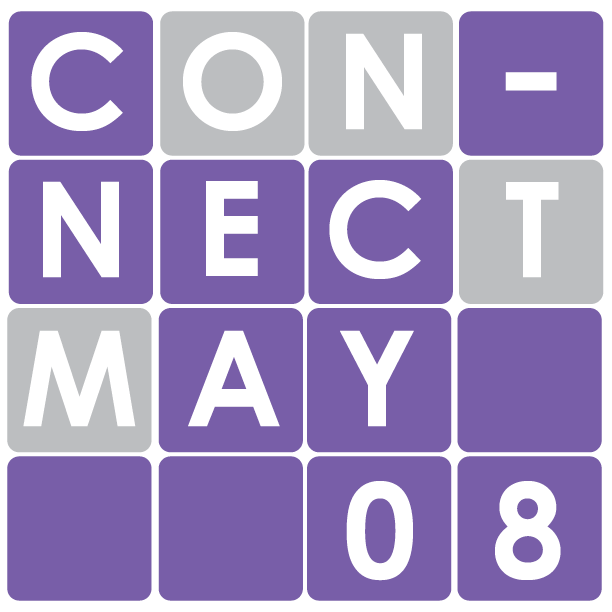
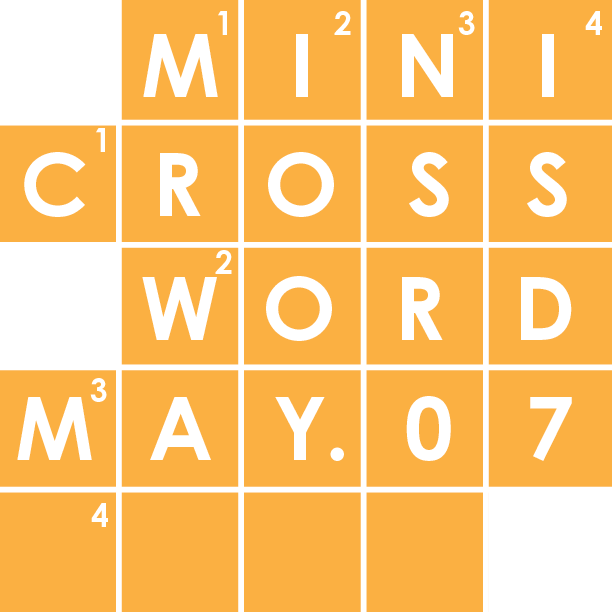
![Review: Taylor Swift’s new album The Tortured Poets Department is not her best work but is still a brilliant album [MUSE]](https://hilite.org/wp-content/uploads/2024/05/The-Anthology_Cover-1200x675.webp)
![Review: Challengers does it all [MUSE]](https://hilite.org/wp-content/uploads/2024/05/challengers-poster-1200x600.png)
![Review: A House of Flame and Shadow by Sarah J. Maas was a disappointing read [MUSE]](https://hilite.org/wp-content/uploads/2024/05/house-of-flame-and-shadow-feature.png)
![Review: Conan Gray’s new album, “Found Heaven”, is a refreshing twist on modern music [MUSE]](https://hilite.org/wp-content/uploads/2024/05/Screenshot-2023-10-31-at-16.01.05.webp)
![Review: “Bodies, Bodies, Bodies” is the quintessential Gen-Z movie [MUSE]](https://hilite.org/wp-content/uploads/2024/05/Screenshot-2024-05-15-140618.png)
![Review in Print: Maripaz Villar brings a delightfully unique style to the world of WEBTOON [MUSE]](https://hilite.org/wp-content/uploads/2023/12/maripazcover-1200x960.jpg)
![Review: “The Sword of Kaigen” is a masterpiece [MUSE]](https://hilite.org/wp-content/uploads/2023/11/Screenshot-2023-11-26-201051.png)
![Review: Gateron Oil Kings, great linear switches, okay price [MUSE]](https://hilite.org/wp-content/uploads/2023/11/Screenshot-2023-11-26-200553.png)
![Review: “A Haunting in Venice” is a significant improvement from other Agatha Christie adaptations [MUSE]](https://hilite.org/wp-content/uploads/2023/11/e7ee2938a6d422669771bce6d8088521.jpg)
![Review: A Thanksgiving story from elementary school, still just as interesting [MUSE]](https://hilite.org/wp-content/uploads/2023/11/Screenshot-2023-11-26-195514-987x1200.png)
![Review: When I Fly Towards You, cute, uplifting youth drama [MUSE]](https://hilite.org/wp-content/uploads/2023/09/When-I-Fly-Towards-You-Chinese-drama.png)
![Postcards from Muse: Hawaii Travel Diary [MUSE]](https://hilite.org/wp-content/uploads/2023/09/My-project-1-1200x1200.jpg)
![Review: Ladybug & Cat Noir: The Movie, departure from original show [MUSE]](https://hilite.org/wp-content/uploads/2023/09/Ladybug__Cat_Noir_-_The_Movie_poster.jpg)
![Review in Print: Hidden Love is the cute, uplifting drama everyone needs [MUSE]](https://hilite.org/wp-content/uploads/2023/09/hiddenlovecover-e1693597208225-1030x1200.png)
![Review in Print: Heartstopper is the heartwarming queer romance we all need [MUSE]](https://hilite.org/wp-content/uploads/2023/08/museheartstoppercover-1200x654.png)






















![Review: “Ginny & Georgia” is a dramatic and poorly made emotional rollercoaster–and I loved it anyway [MUSE]](https://hilite.org/wp-content/uploads/2024/03/ginny-and-georgia-season2-main-be37bbb9487a41e88b3f66c3baacd5c3-300x177.jpg)
![Review: Witch Hat Atelier is a masterpiece in art and world-building, but the story has only begun [MUSE]](https://hilite.org/wp-content/uploads/2024/01/unnamed-211x300.png)
![Review: “Mysterious Lotus Casebook” is an amazing historical Chinese drama [MUSE]](https://hilite.org/wp-content/uploads/2024/03/0-300x170.webp)
![Review: “A Little Life” by Hanya Yanagihara is the epitome of a heartwrenching masterpiece [MUSE]](https://hilite.org/wp-content/uploads/2024/01/unnamed-5-300x200.png)


